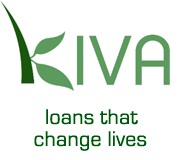I feel insanely passionate about making people understand their options—their talents, their strengths, their innate holy-cow-ness—but I mostly think in terms of people who are living the same kind of life I am. People who have a place to live, family and friends, emotional support, access to (sometimes very) basic health information and services, transportation, and food. People who find themselves in scary situations, sure, but people who already have a very decent foundation on which to build a better life for themselves. I had thought some about people without those things before reading The Blue Sweater, but I don’t know if I thought about it enough. My passion for waking people up to their own potential hasn’t changed, but I have to wonder now what one has to do with the other.
What does confidence and purpose and passion and awareness mean if you can’t eat? Can’t keep yourself healthy? Can’t keep a roof over your head? I believe they can make the difference between a person who stays poor and a person who improves their own lot, but there are still missing pieces. If you don’t have a certain basic quality of life, can you even spare energy to consider these things? If I found myself without any resources, maybe I could—because I’ve already done it, I already know how and I’ve seen the results. But it’s hard enough to raise yourself up when you have most of your needs met. I’m having a hard time imagining the same process without family, food and shelter. When I say I’ve had a hard time buying groceries, I mean it—but I will probably always be able to eat somehow, even in the hardest of times. If I couldn’t eat, if I had to live out in the elements… I probably wouldn’t be preaching to you about confidence and purpose and passion and awareness.
I wouldn’t have the guts.
Would I?
Is there something to all of this, even for people who have much graver concerns than I do? Most of the people reading this blog do have their basic needs met, do have some resources to draw on, many of them (I might argue all of them, because I always do) are in an excellent position to mindset+action themselves into the place they want to be. Anyone with access to the internet has a huge array of options at their disposal. “I can’t” means less and less to you and I every single day. But what about everybody else?
I suppose this is one of the reasons the work of Acumen Fund appeals to me—they’re not about hand-outs or charity projects. They’re about giving people the tools to build themselves up. I resonate powerfully with that mission. It’s what I want, too. Teach a man to fish, folks. And maybe it’s just a difference in scale: Teach a man to fish. Teach him to connect with others. Teach him to use the internet. Let him teach others. Help him set up a fish consulting business. Make him the primary source on the web for fish information products. Then he has a fish empire. He’ll be fine.
Nope. I don’t know what it all means yet. But I’d love to hear what you think.
Tagged as: Acumen Fund, Jacqueline Novogratz, potential, poverty, purpose, The Blue Sweater



